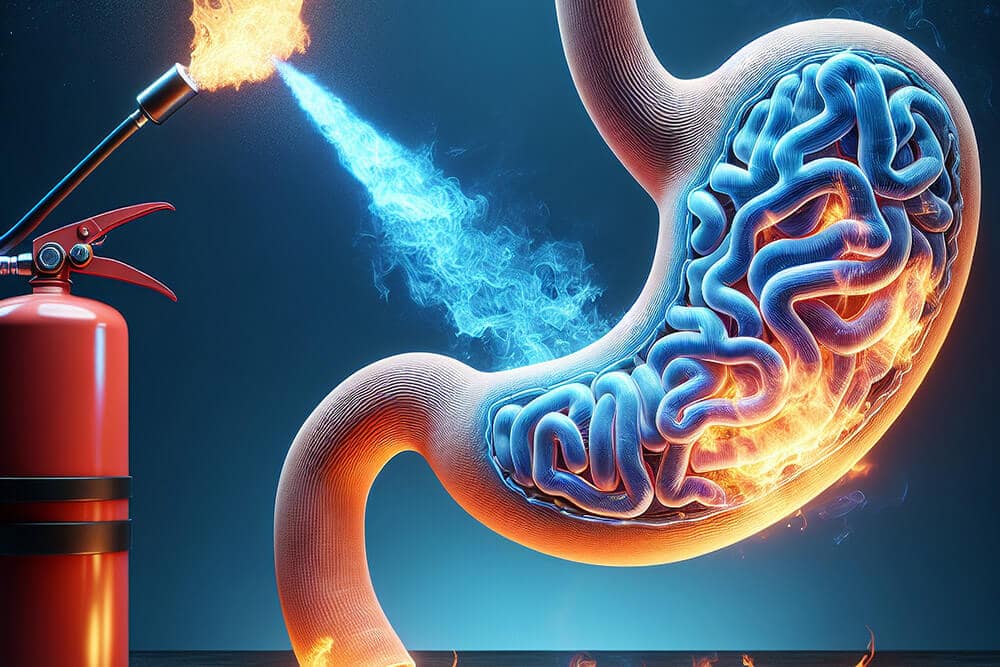
You can test mealtime in Houston and you are always having a hard time trying to cope with chronic acid reflux. The hotness in your chest may ruin a day in Discovery Green or a night out in Montrose. Fortunately, it is possible to control your symptoms, as Dr. Bharat Pothuri, a prominent gastroenterologist in the Texas Medical Center, explains that you watch what you consume and drink.
This is caused by the flow back of the stomach Acid reflux in your esophagus. This may be annoying to the lining overtime. Considering that you experience heartburn twice a week or more, you might be affected with the gastroesophageal reflux disease ((GERD)) problem.
But what is the duration of acid reflux? that is what you may expect to know, to find out that Dr. Bharat Pothuri answers: Acid reflux may last a few minutes or a couple of hours. In chronic conditions, mild burning may be experienced on most days.
Others even complain of acid reflux paining back muscles a symptom that indicates that the acid has the power to burn nerves that run along the spine.
You need to discuss your symptoms with your doctor in case they are severe or persist. A page on acid reflux of Mayo Clinic is also a reliable source of information.
To digest food, your stomach secretes acid. Some foods may cause additional acid or slow digestion which may make reflux worse. Diet modification is one of the factors that relieve many.
According to Dr. Pothuri, Food is a trigger, to some patients in Houston, one meal can cause hours of pain.
The following are the list of frequent culprits. You do not have to slice it all down at the same time. Use elimination diet: Eat one group in your diet, stop to observe your response.
These foods have the capacity to relax the lower esophageal sphincter (LES) or the muscle that holds the acid in your stomach. Loose LES predisposes to reflux.
What you drink may be every bit as good as what you eat. Let us discuss some of these generic questions:
Certainly, coffee may cause people to reflux. Its caffeine effect and acidity relaxes the LES. When you enjoy your morning drink, change to low or decaf drink.
Acid can be soothed by taking little amounts of water and this helps in relieving pain. But excessive amounts at once will stretch your digestive system and aggravate acid. Aim for 5-8 ounces between meals.
Pepto-Bismol covers the stomach, and may prevent irritation. It is helpful in temporary relief but does not cure isolated GERD. In case of persistent heartburn, antacids such as Tums or prescription medications such as Nexium should be better.
Houston has hot and humid weather that aggravates acid reflux. Some local-friendly advice is as follows
Cause complication such as esophagiitis or barretts esophagus. Interview a gastroenterologist of either the Memorial Hermann or the Houston Methodist in Houston. Dr. Pothuri tells on, do not wait. The chronic acid reflux may cause damage to the esophagus.
As you are trigger-avoiding, put something that is reflux-safe on your plate:
To get additional tips and evidence-based information, visit:
ERP does not mean that you have to give up the great food that Houston has to offer. No longer dread to eat a meal you will soothe you heartburn, get a better night sleep and be able to enjoy every meal. Begin by removing one or two items that you consider in danger now your esophagus will appreciate it!
Yes. In the event that acid irritates nerves around your spine, the discomfort may be experienced at the upper back.
Pepto-Bismol provides temporary relief through covering the stomach. It is not a lasting remedy of GERD.
Acid can be diluted and washed down by sipping water. Never gulp a lot of food because it may pose a risk of putting a lot of pressure on the stomach.
Yes. It contains acid and caffeine that are able to relax the LES and cause the symptoms. Use decaf or low acidic coffee.
The best are non-citrus herbal teas, aloe water and alkaline water.
Common triggers include spicy foods, citrus foods, tomato foods, fried foods, chocolate, mint, onions, and garlic.
Yes. Alcohol enlarges the LES and raises the volume of stomach acid aggravating reflux.
Select grilled lean meat, steamed vegetables and avoid spicy sauces. Ask for dressings on the side.
In case lifestyle changes and the use of over-the-counter remedies have not helped, or in the presence of chest pain, difficulty with swallowing, or with weight loss.